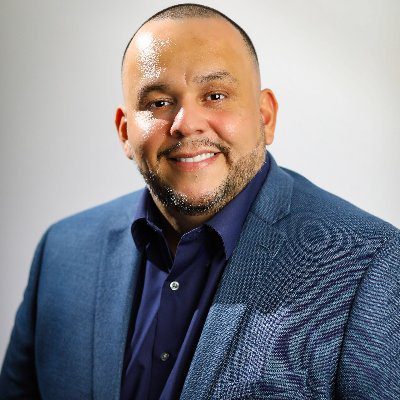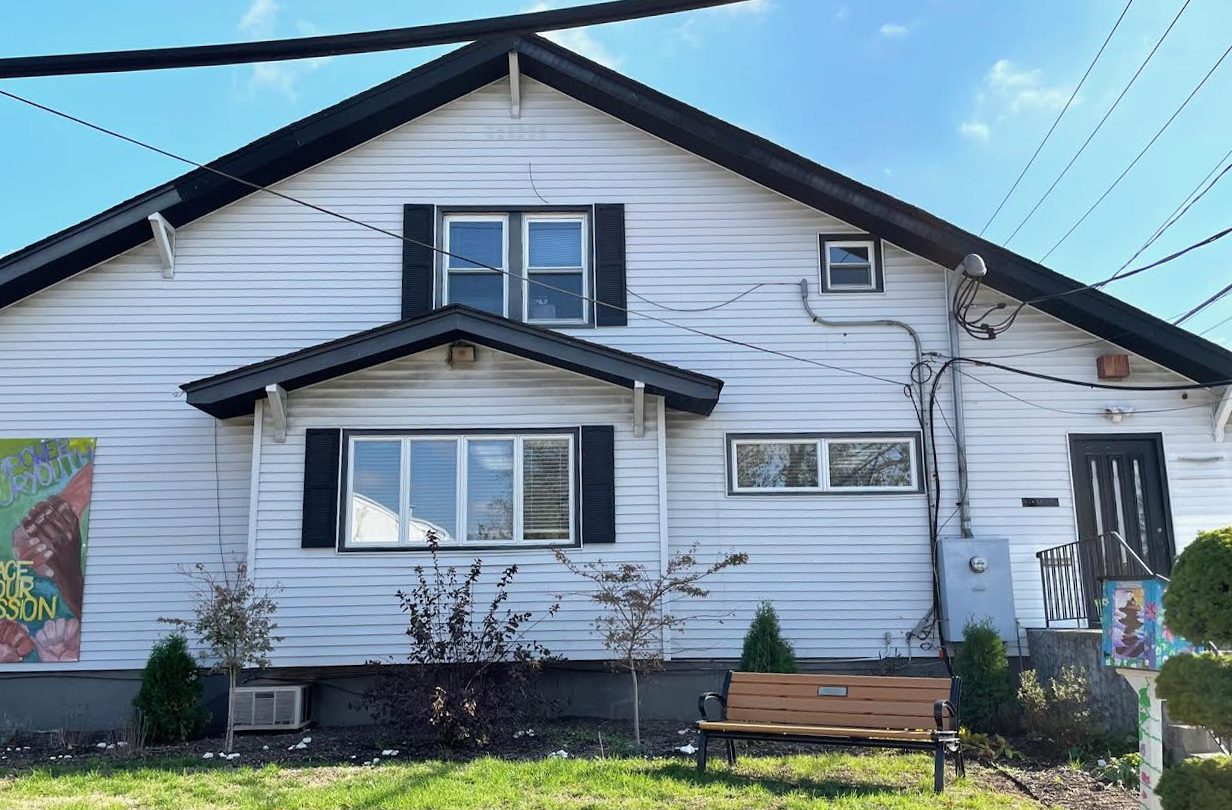By Lucas Pino
Editor’s note: This is part seven in a long-term series on Uniondale by Hofstra University graduate journalism students enrolled in Community Journalism this past fall.
Sergio Argueta founded the nonprofit STRONG (Struggling to Reunite Our New Generation) Youth in Uniondale in 2000 when he was just 22 years old to reduce gang crime and violence in children’s lives.
“STRONG was really born out of the pain and sadness of losing young people in our community,” Argueta said. “We came together to start proposing solutions and answers to the issues that plague our community, and that’s pretty much what gave birth to our movement.”
Argueta and co-founder Michael Hernandez started STRONG following the death in June 2000 of Uniondale resident Eric Rivera at the hands of gang members. Today, the organization is among the leading gang-prevention groups in the Northeast, spreading its message of non-violence and healing to tens of thousands of young people and conducting numerous community service projects, including cleaning up parks and removing graffiti.
Argueta had been a part of a gang himself three years before starting STRONG. “When I started STRONG, I embraced the fact that I had actually walked this plight,” he said.

Argueta earned his bachelor’s in sociology from Hofstra University in 2003 and his master’s in social work from Stony Brook University in 2006. He had served as STRONG’s executive director from 2000 to 2011, when he became the organization’s chairman. Since August 2014, he’s been a social worker at Uniondale High School.
Argueta was called to found the organization, he said, because of “systemic failures by government and individuals that failed to acknowledge and recognize the plight of individuals, particularly those that are most marginalized, those that are most oppressed.”
Argueta grew up in Hempstead, enduring a number of hardships and making his share of mistakes in his youth. “I’m quick to point out my mistakes as a young person,” Argueta said. “And so, whether it was a rite of passage to open me up to understanding a true calling, God’s calling, or just happenstance, here I am able to frame these issues in a way that many don’t have the opportunity or the skills to do so.”
The program focuses on education as the antidote to gang violence. “We think it’s important for our kids to recognize that and switch their perspective and understand that there are positives in their life,” said Rahsmia Zatar, STRONG’s current executive director. “And when you recognize that, you start taking ownership of your decisions and what your community looks like in a different way.”
STRONG partners with community-based organizations, schools and churches. “We partner with anybody that is willing to come together and pull together all of our skills and expertise and perspectives and resources in order to positively affect community,” Zatar said.

Among the organization’s most popular activities is Family Night, when program participants and their parents come together. “Life is really hard for a lot of our families — parents working two, three jobs,” Zatar said. “And they’re very appreciative when we create spaces where they can come together and be together and just not have to be in the hustle so much.”
Rich Paul took part in the program when he was 19 years old. At that point in his life, he had been in and out of prison. He had also been on the streets from a young age, and he thought that was the best way to live his life.
When he began participating in STRONG, that all changed for him. “STRONG introduced me to different ways of looking at life . . . You don’t have to sell drugs. That’s not the only way that you could be successful,’” Paul said.
Paul started telling his story at various speaking engagements, including at his middle and high schools. “It was very therapeutic for me,” Paul said. “It was the first time that I saw myself having a legal career. I found something that I enjoyed more, which is connecting with people through similar struggles.”
After earning his associate’s and bachelor’s degrees, Paul is now an intervention counselor with STRONG. “I challenge the detrimental mind frame that a lot of our young people have that stems from the streets,” Paul said. “I connect our young people to the community, and I connect our community to our young people in positive ways.”
He’s now far removed from his old street life. “It wasn’t until I was ready, mentally, spiritually, to take on that responsibility [of serving as an intervention counselor], which was over a decade later,” Paul said. The work, he noted, is more than a job. It’s a “lifestyle.”
Paul credited STRONG with saving him from the gang life. “I was speeding down the wrong path,” he said. “STRONG played a major role in my growth and development and a major role in saving my life. . . . uplifting me and empowering me, believing in me, and never letting me forget that I am great, that I am worthy, and that there are other opportunities out there for me in the world.”
There are many who feel as Paul does. “A lot of the feedback that we’ve gotten throughout our whole entire existence is ‘thank you for seeing me, thank you for not judging me, and thank you for accepting and loving me,’” Zatar, the executive director, said.
“Life is really hard for a lot of our families — parents working two, three jobs,” Zatar said. “And they’re very appreciative when we create spaces where they can come together.”
Rahsmia Zatar, STRONG Youth Executive Director
Many STRONG participants return years later just to say thank you. “That means a lot to us that we’re able to offer that unconditional love,” Zatar said.
STRONG has grown considerably over the past 20 years. To date, it has provided programming to more than 800 Long Island young people. “It’s been a little surreal as somebody who has been involved since the very beginning,” said Zatar, who started with the organization in 2005. “It’s come through a lot of hard work and sacrifice . . . It hasn’t been easy, but we’ve kept very true to our foundational principles and values.”
Argueta agreed, saying, “We’ve developed a network and a national and international network of support that is now on board and really supporting our drive and our mission.”






